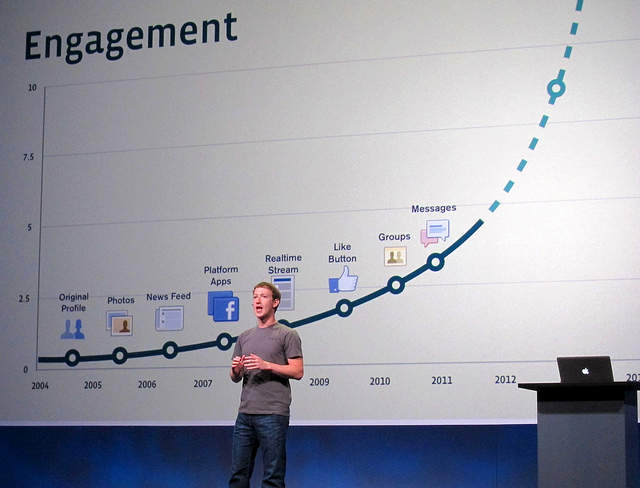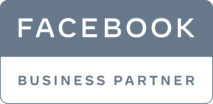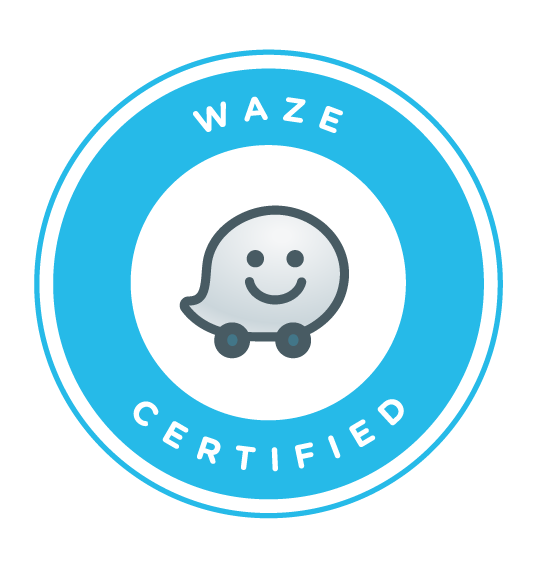
Facebook Growth
Now 10 years old and with over 1.23 billion users Facebook is the darling of social media to some, a necessary evil to others.
The platform seems to offer companies easy access to the marketing channel of their dreams. A mainstream audience of over a billion, with the ability to reach them all for free, and the analytics to go with it.
But is it really like that?
There is no doubt there have been some success stories on Facebook. Small companies that have gone global by leveraging the platform. Brands that have run stunning campaigns that wouldn’t have been achievable otherwise.
But did these examples all just add to that asset all businesses require to prove their worth, case studies. Mix these in the PR machine with a touch of spin and you have the makings of marketing vehicle that’s the equivalent of Dick Whittington’s “streets paved with gold”.
So now everyone wants to market themselves on Facebook, looking for the secret that will turn their startup or SME into the next must have acquisition.
The problem?
There never really were any “streets paved with gold”. Using a a more common term, Facebook have used a “bait and switch”. A practise where you lure people in on an assumed promise, only for them to find out later on that the promise was never real.
All startups do this to an extent, we invite people in for free, to gain a user base that we can then sell to at a later date. Facebook have seemingly performed this slight of hand on a grander scale.
Having spent months, even years, growing Likes on your Facebook page you find you are no longer talking to as many people as you originally thought. Although many have suspected this scenario were the case for some time, with Facebook restricting natural reach of page posts to about 16% of your Likes, a recent study by Ogilvy highlights the full impact of Facebook’s drive to get companies and brands to pay to promote their posts.
Promotion to an audience you may well have already spent considerable time and money growing.

According to a study by Ogilvy of a 106 Facebook Pages it has access to their organic post reach has dropped by 49% since October 2013. Those brands with over 500k Likes were hardest hit, with an organic reach of just 2% in February 2014.
Therefore, it very much looks as if Facebook is morphing from an earned media platform to the same old paid media platform we are very much used to. Whilst less educated businesses jump in to leverage the platform based on those famous case studies, instead of the free opportunity they were hoping for, they may well find their budgets under pressure for additional spend to leverage the largest captive audience in the world.
Facebook have their say
According to Facebook’s News Feed Director of Product Management Will Cathcart in an interview with Techcrunch, “The roughly 50% decline in reach over the past year matches the 50% increase in Page Likes per typical Facebook user over the same time period. As people Like more Pages, the organic reach of each drops.”
This change is also algorithmic based, with a 100,000 different indicators of importance are factored in. Some of those are:
- How popular (Liked, commented on, shared, clicked) are the post creator’s past posts with everyone
- How popular is this post with everyone who has already seen it
- How popular have the post creator’s past posts been with the viewer
- Does the type of post (status update, photo, video, link) match what types have been popular with the viewer in the past
- How recently was the post published
What to do if you want to leverage Facebook?
According to Marshall Manson, Managing Director of Social@Ogilvy for Europe his advise is, “…to avoid overcommitting to a single platform. The right recipe for social starts with clearly defined business objectives, folds in a strong understanding of what the audience wants, and a few measures of clever storytelling designed to facilitate engagement.”
For Facebook Ogilvy also suggest :
- Put aside a flexible pot of paid media budget
- Develop a paid strategy
- Get used to making harder choices about what to publish
- Re-evaluate your day-parting strategy
- Consider publishing content multiple times
- Take an editorial approach to content creation
- Aggressively pursue cross platform recruiting
- Aggressively pursue cross platform recruiting
Manson states finally, “Facebook Zero is a reality now facing every brand and business with a presence on the platform. Action is required, and specific decisions will need to be made with regard to content planning, paid support for social media activities, audience targeting and much more.”
The Facebook of the future
Whether you believe Facebook’s explanation or not, where Facebook have been a little less than upfront is in encouraging companies to buy Likes. The roughly 50% decline in reach over the past year matches the 50% increase in Page Likes per typical Facebook user over the same time period. As people Like more Pages, the organic reach of each drops. Knowing that in the future it would be harder to each that audience and that those Likes would be of less value.
Facebook may or may not have worked for you in the past, but the Facebook of the future is going to be different. It is a Facebook that needs to make a profit and it has shareholders demanding a return.
That’s going to require money, your money!
Let us know what you think on Twitter or Google+, is organic reach on Facebook heading for zero?
[Photo Credit: Niall Kennedy]





